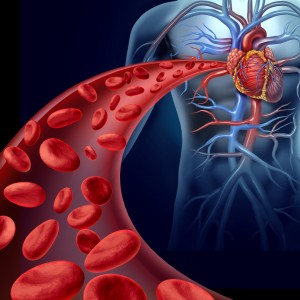 A research team from the Wake Forest Baptist Medical Center recently found that a frequently prescribed antidepressant could cause up to a six-fold increase in coronary atherosclerosis, the principal cause of heart attacks, in non-human primates. The study was published in the journal Psychosomatic Medicine.
A research team from the Wake Forest Baptist Medical Center recently found that a frequently prescribed antidepressant could cause up to a six-fold increase in coronary atherosclerosis, the principal cause of heart attacks, in non-human primates. The study was published in the journal Psychosomatic Medicine.
“The medical community has known for years that depression is closely associated with heart disease, but we didn’t know if treating it would reduce the heart disease risk,” said Carol Shively, Ph.D., professor of pathology/comparative medicine at Wake Forest Baptist and lead author of the study in a recent press release.
In their study, the researchers fed for 18 months a total of 42 middle-aged female monkeys a Western-like diet. The diet contained cholesterol and fat. The researchers recorded at baseline the animals’ depressive behavior and decided to choose only female animals since in the United States, coronary heart disease is the principal cause of death in women and these are twice more likely than men to develop depressive disorders.
The primates were randomly assigned to receive a regularly prescribed antidepressant (every day for a period of 18 months), a selective serotonin reuptake inhibitor (SSRI) named Zoloft, or a placebo. The dose of the antidepressant was similar to the one usually given to patients.
Results revealed that primates that received the SSRI developed three times the amount of atherosclerosis in their coronary arteries compared to primates that received the placebo. In primates that were depressed, the amount of atherosclerosis was about six times superior if the animals received SSRI when compared to those prescribed with the placebo.
“Our findings suggest that long-term treatment with this drug promotes coronary artery atherosclerosis in non-human primates,” Dr. Shively said in the press release. “This may be clinically significant for people because almost a quarter of middle-aged women in the United States take antidepressants, the most prescribed of which are SSRIs.”
Dr. Shively concluded that while more studies are necessary, clinicians should consider the results from this study when prescribing antidepressants. Evidence from previous studies supports that counseling and physical exercise are as effective as SSRIs in treating depressive symptoms.


